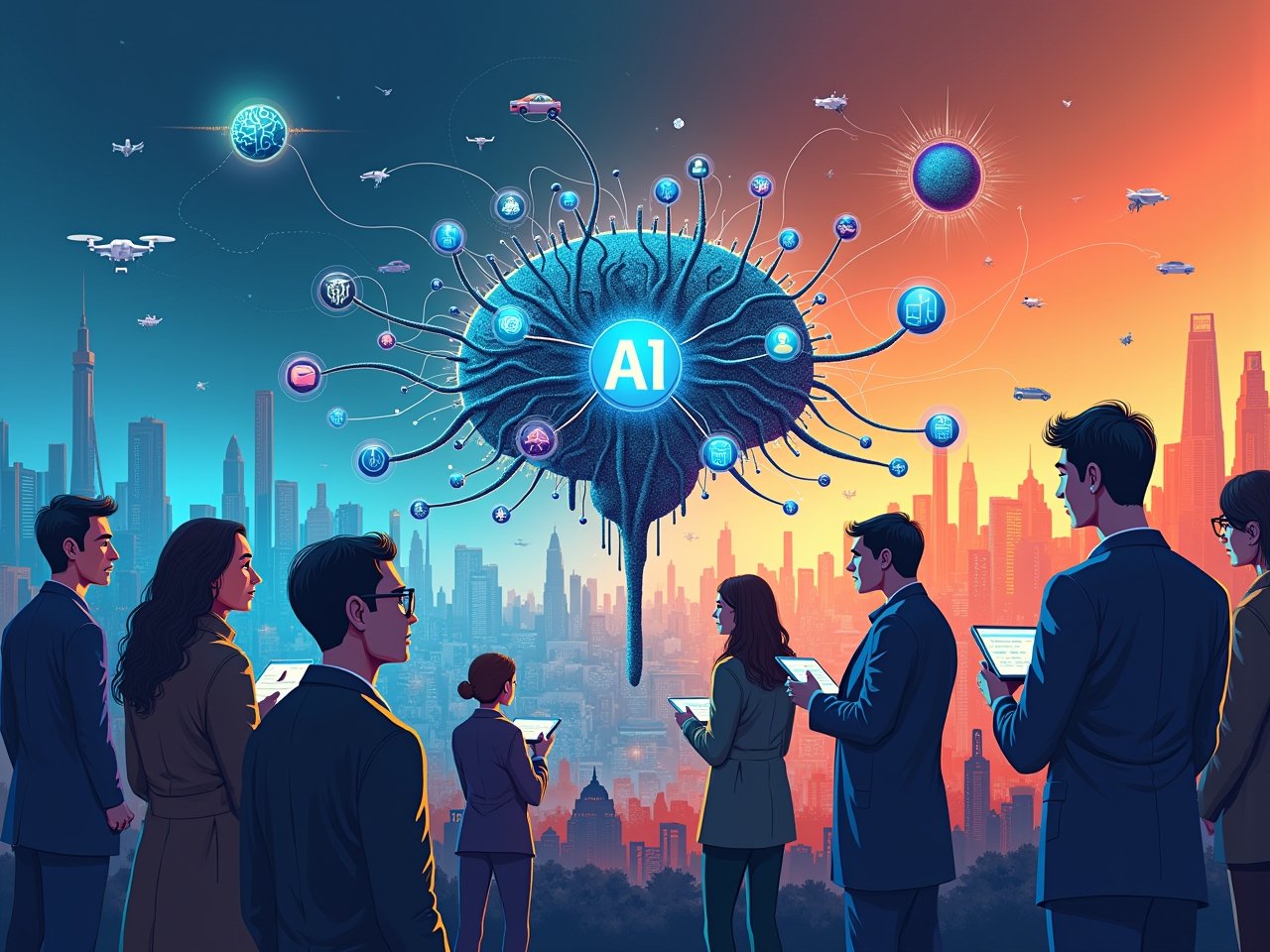AI is not a futuristic idea; it’s an indispensable a part of our day by day lives and industries worldwide. From powering clever devices to enabling superior medical research, AI is anywhere. In this newsletter, we discover The Current State of AI: Where Are We Now?, discussing its current improvements, real-world packages, moral demanding situations, and the potentialities shaping its destiny.
Recent Advancements in AI
The past few years were enormous for AI. Breakthroughs in system gaining knowledge of and deep learning have propelled AI structures to obtain outstanding capabilities. Natural language processing (NLP) fashions like ChatGPT and Google Bard have revolutionized conversation by using making human-like conversations feasible. Similarly, pc imaginative and prescient improvements have enabled technology like facial reputation and self sufficient automobiles.
Generative AI, a subfield gaining fast traction, allows machines to create content material, from artwork and song to text and code. Tools like DALL-E and MidJourney are pushing creative boundaries, demonstrating how AI can mixture generation with artistry.
AI’s potential to system enormous datasets quickly has additionally caused advancements in predictive analytics, supporting industries make information-pushed choices greater efficiently.
Real-World Applications of AI
AI’s impact is felt across diverse sectors:
- Healthcare: AI systems like IBM Watson and DeepMind help in diagnosing diseases, predicting outbreaks, and personalizing remedy plans.
- Finance: Fraud detection, algorithmic buying and selling, and credit hazard analysis are now powered by using AI. Fintech corporations are leveraging AI for better patron reviews.
- Transportation: Autonomous vehicles from companies like Tesla and Waymo use AI to navigate and ensure passenger protection.
- Retail: E-commerce systems like Amazon rent AI for personalized shopping recommendations, optimizing stock, and improving customer support through chatbots.
- Education: AI-driven gear like Duolingo and Coursera customize learning stories, adapting to individual student desires.
Ethical Considerations in AI
While AI offers monstrous ability, it also increases substantial ethical concerns. One essential problem is bias in AI systems. Since AI models are educated on statistics that can carry societal biases, those biases can manifest in real-world packages. For instance, facial recognition software program has been criticized for its inaccuracies in figuring out individuals from certain demographics.
Privacy concerns are any other pressing project. AI structures often require big amounts of private facts, which raises questions about how this facts is stored, shared, and guarded.
The fear of activity displacement is likewise outstanding. While AI creates new opportunities, it threatens to automate roles, specifically in manufacturing and administrative sectors. Addressing these ethical challenges requires stringent policies and accountable AI improvement.
Future Prospects of AI
Looking ahead, AI will hold to evolve, presenting even greater transformative competencies:
- AI and Sustainability: AI will play a pivotal role in tackling weather change, optimizing resource use, and developing renewable energy solutions.
- AI in Augmented Reality (AR) and Virtual Reality (VR): Enhanced immersive reports powered by AI are set to revolutionize gaming, schooling, and remote work.
- General Artificial Intelligence (AGI): Although still dream, AGI—machines with human-like reasoning talents—represents the subsequent frontier in AI research.
The worldwide funding in AI studies is a testament to its importance. Companies and governments are pouring billions into advancing AI technologies, aiming to create systems that are not best intelligent however additionally aligned with societal needs.
The Current State of AI: Where Are We Now? Highlights how a ways we’ve come and the challenges and possibilities that lie in advance. AI has cemented its function as a transformative technology, reshaping industries and improving lives. However, as its influence grows, so does the obligation to apply it ethically and sustainably. By addressing its barriers and fostering innovation, AI can lead us closer to a better, more inclusive future.







